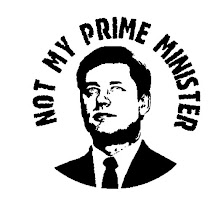In the meantime, Harper continues to play foul. Thank you to the Toronto Star and Antonia Zerbisias for posting this truly important and informative article!
Harper looks beyond the fringe by
Sep 11, 2009 04:30 AM
http://thestar.com/article/693897
I'm thinking of making T-shirts: "Proud to be a member of that `left-wing fringe group' called `Women.'"
They'd be pink, of course, for socialism – and also for the pink triangle, the badge the Nazis made gays and lesbians wear before shipping them off to the camps.
Thanks to Prime Minster Stephen Harper, those T-shirts will make me rich!
So props to you, P.M., for letting down your hair, and your guard, last week at that not-so-closed-door speech in Sault Ste. Marie.
Thank you for finally admitting that your government shut down the Court Challenges program in 2006 not just because, as then-Heritage Minister Bev Oda claim- ed in Parliament, you "recognize the importance of women" but because you believe that that women's rights are "left-wing fringe" rights.
Truth is, you only "recognize the importance" of some of the women some of the time. Members of fringe groups such as R.E.A.L. Women, which opposes women's rights and same-sex rights, plus just about everything that doesn't hew to the "family values" one-man, one-stay-at-home-woman and lots-of-babies fantasy.
But they are not "fringe" to you, Prime Minister. At least not judging from how everything your government attempts to do comes right out of R.E.A.L. Women's playbook. So thank you for, once again, opening that not-so-hidden agenda, the one that you would impose if you ever won a majority government.
The agenda that thinks women's work is not as valuable as men's.
The agenda that would treat lesbians and gays as less than equal.
The agenda that would curb the rights of people with disabilities.
The agenda that would discriminate on the basis of race and religion.
The agenda that would leave women without reproductive freedom.
That's because that Court Challenges program your government deemed "wasteful," was, according to its website, "a national non-profit organization which was set up in 1994 to provide financial assistance for important court cases that advance language and equality rights guaranteed under Canada's Constitution."
Not just "important" cases, but landmark cases, many fought by LEAF, the Women's Legal Education and Action Fund – a group clearly overrun by rabid fringe feminists.
They intervened in "left-wing fringe" court cases such as Torres v. Minto Management (2002), which prevented a landlord from increasing a single mother's rent by 41 per cent just because her husband had left the building.
Then there was the "left-wing fringe" case The Queen v. Keegstra (1990), which kept a Holocaust denier from teaching his anti- Semitic ideas to Alberta schoolchildren.
Or how about that "left-wing fringe" case Brooks v. Safeway (1989), which forced employers not to discriminate against pregnant staffers.
And here you are, Mr. Harper, such a champion of "childcare choices" that, last week, you boasted of your government's failure to create a single daycare space.
"We need to win a majority," you told your enthusiastic audience. "If we do not win a majority, this government will have a Liberal government propped up by the socialists and the separatists."
And later, you added: "Imagine how many left-wing ideologues they would be putting in the courts."
Frankly, I think more Canadians would find the alternative a scarier proposition.
Finally, thank you for revealing your nasty, petty and vindictive side, the one that you batten down when you know the cameras are on you.
Maybe, while you're scrapping the gun registry, you could start one for cellphone cameras so, next time, nobody in your audience can tape you, and then leak the videos to CBC.
So, anyway, I'm thinking of adding shimmy-shimmy-shake fringe to the T-shirts.
Rich! Rich I tell ya!
(Marketing types can contact me at my email address below.)
Antonia Zerbisias is a Living section columnist and feature writer. azerbisias@thestar.ca.

